Nearly 4 out of 5 people in the UK care about their privacy.
Big Tech doesn’t.
Big Tech doesn’t.

Most people want to defend their privacy, but Big Tech won’t let them.
A new study from Proton and YouGov finds that most people in the UK are concerned about online surveillance but lack the knowledge and tools to protect themselves.
Most people believe it’s unethical for Big Tech to profit off their personal information.
Over two-thirds of people don’t understand how online services use their data.
Virtually no one can completely protect themselves from Big Tech.
Executive summary:
Understanding the privacy paradox
Companies like Google have built a surveillance dragnet unprecedented in human history. They can see everything you do online, monitor everywhere you go, and read every conversation you have.
If Big Tech sent actual spies into our homes, we would never stand for such an intrusion into our lives. But for some reason we put up with it online.
This discrepancy is known as the privacy paradox. What explains it?
As privacy advocates, we have come to suspect most people are simply unaware of what happens to their data online. And tech companies that profit from this data are incentivized to keep it that way, obfuscating what data they collect, how much they keep, and what they do with it.
Like good scientists, we decided to test our hypothesis. Working with the UK research firm YouGov, we asked people what they think about their online privacy and security.
As you can see below, this research largely confirmed our hypothesis. The average person has little understanding or control over what happens to their data. This is unacceptable given how central the internet is to our daily lives.
It’s time for change.
Andy Yen
CEO, Proton
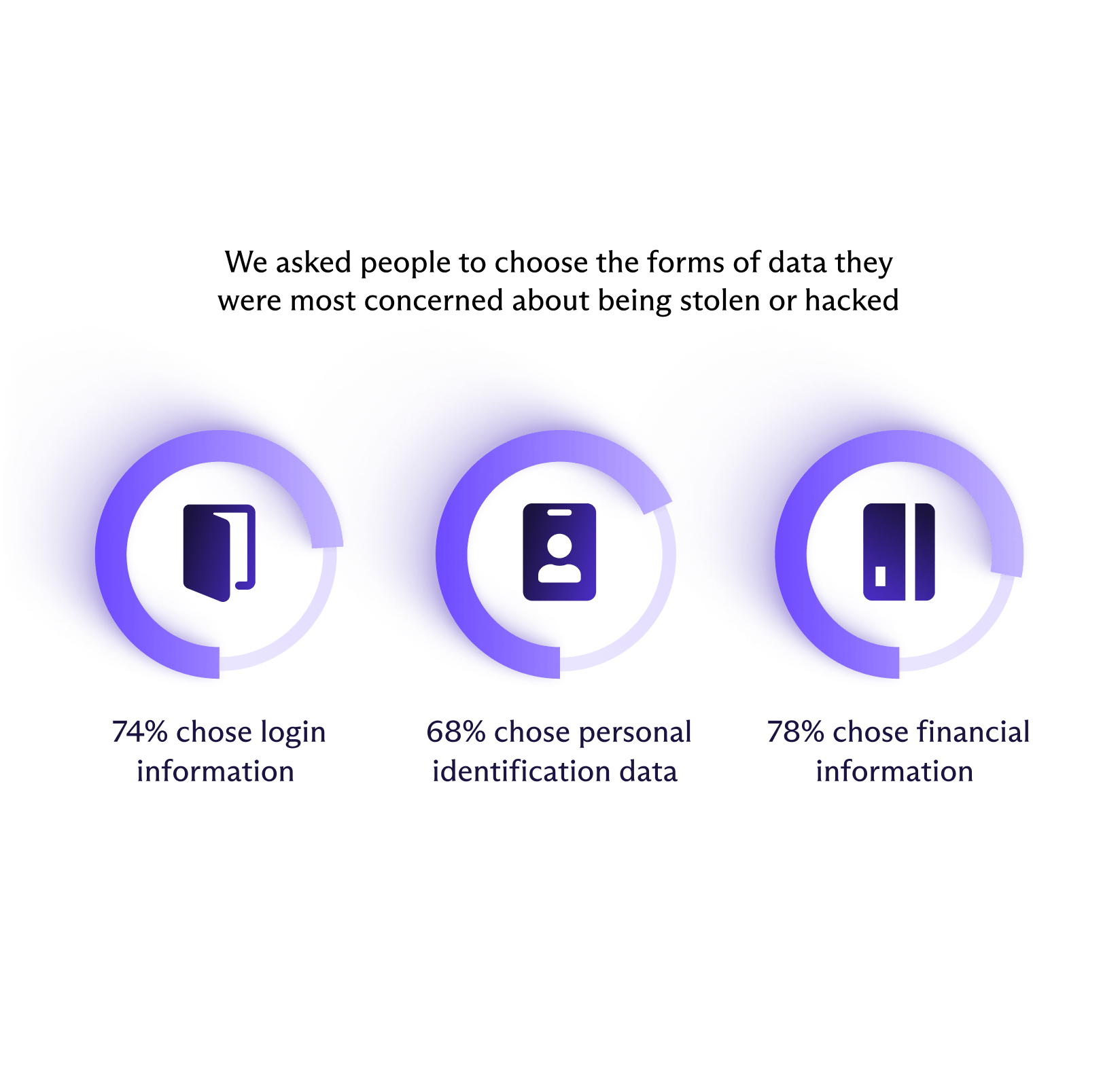
Over three-quarters of people in the UK (77%) are concerned about their privacy online
Given the context of privacy scandals and data breaches regularly hitting the news, it’s no surprise people are worried about how their data is stored and used online.
Over the past year, Big Tech companies have trumpeted the increased control they’ve given people over their data. However, the features are buried under confusing menus and paired with long, incomprehensible privacy policies.
Without meaningful control over their privacy, people are left with a sense of powerlessness.
Methodology:
Total sample size was 2083 adults. Fieldwork was undertaken between 1st - 2nd March 2023. The survey was carried out online. The figures have been weighted and are representative of all UK adults (aged 18+).
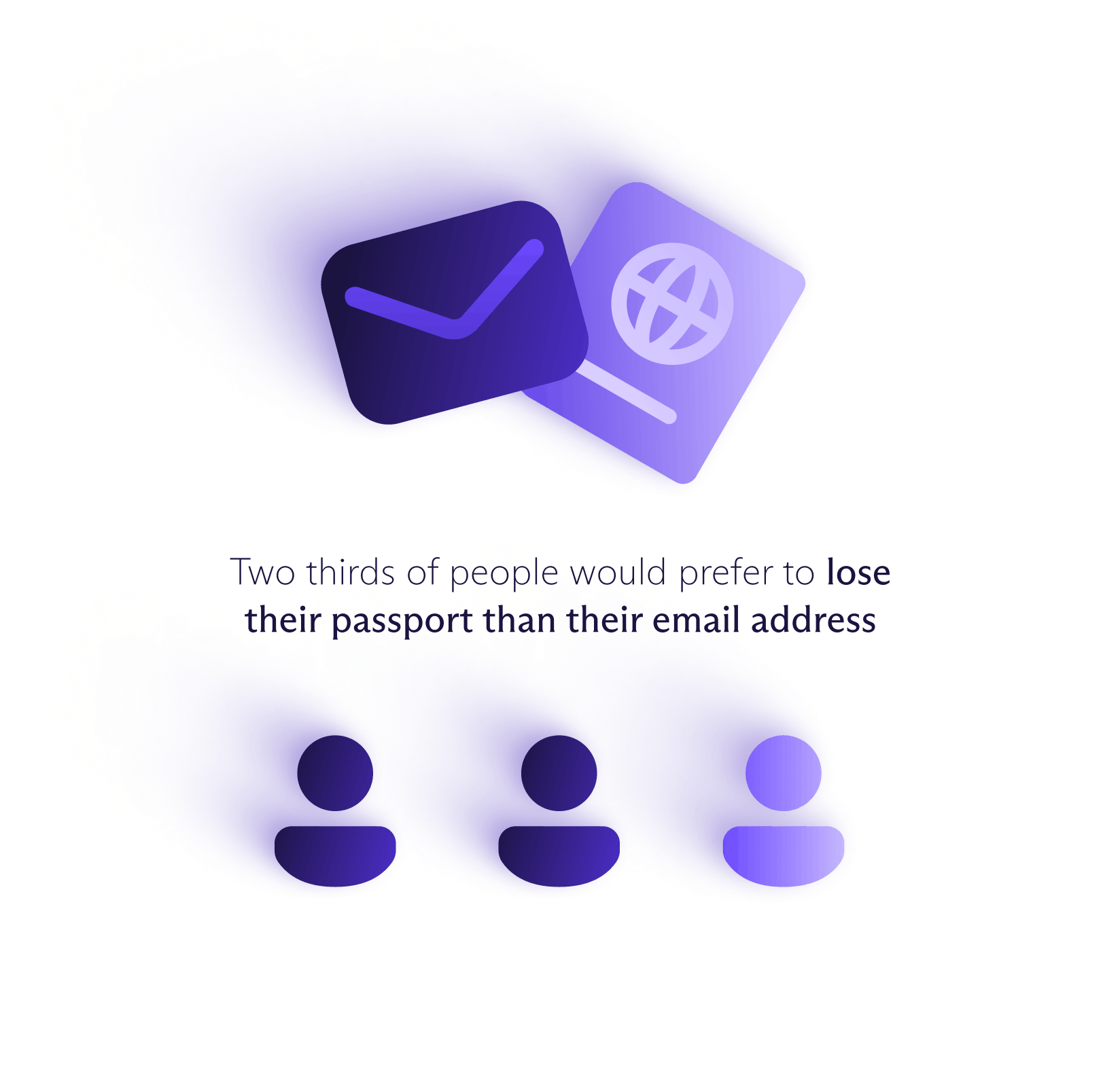
Email is your passport to the internet
Not only is email the most commonly used way of logging in, people in the UK see it as fundamentally important to their lives. A person's email address is far more than just a communications tool. It's their online passport and sits at the center of everything they do online. It's synonymous with their online identity. In fact, two-thirds (66%) of people would prefer to lose their passport than their email.
Spread the Word
Hacking victims are more concerned about privacy
37% of respondents had either themselves been the victim of a hack or knew someone that had in the past year. Overall, hack victims are more concerned about the privacy of their personal data online. 88% are concerned about the privacy of their personal data online, compared to 71% if they were not a victim of a hack.
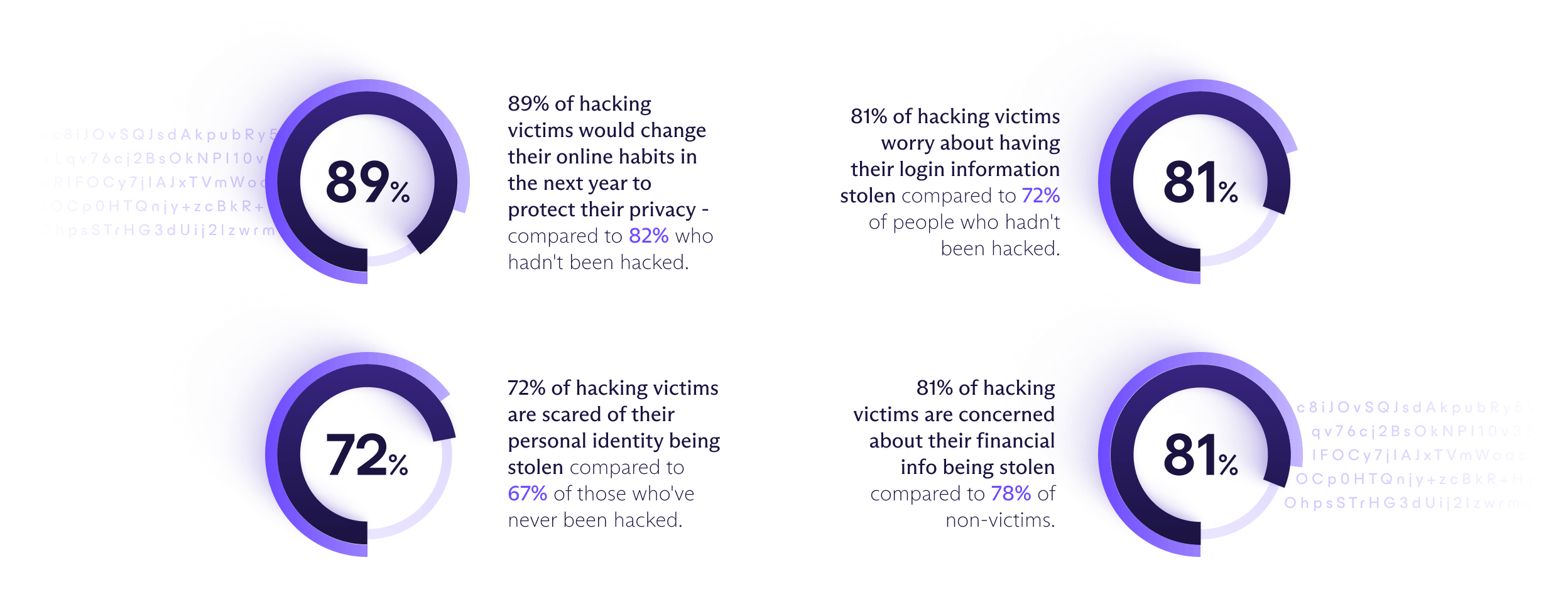
Our privacy arsenal is no match for Big Tech
People want to protect their data. Simple, one-click solutions, such as not accepting cookies or browsing in incognito mode, are popular. Many people think these options stop tech giants from tracking them around the internet. Unfortunately, this isn’t the case. For example, incognito mode doesn’t protect you from being tracked by Big Tech, which can use your email address to track all your online accounts. People appear willing and even eager to take steps to protect themselves. But they’re often mistaken about the effectiveness of the most popular methods.
How do you protect your privacy online?
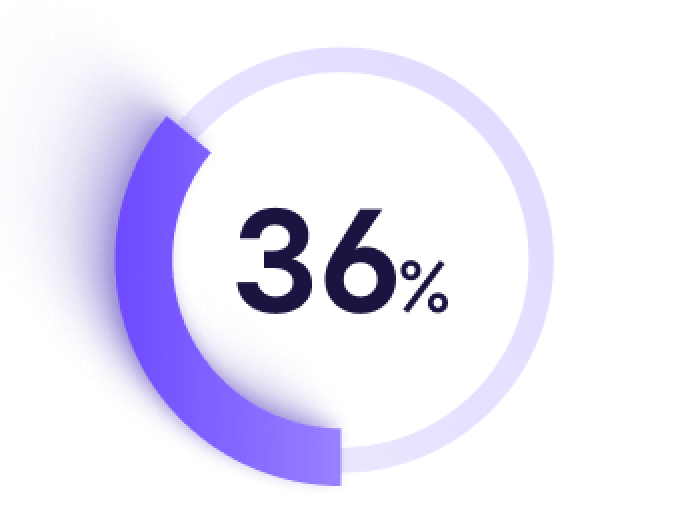
Limiting my digital footprint online

Using multi-factor authentication

Not accepting marketing cookies

Using an ad blocker

Browsing in incognito mode

Using a password manager

Using a VPN

Don’t do anything to protect privacy

Using a privacy-focused search engine
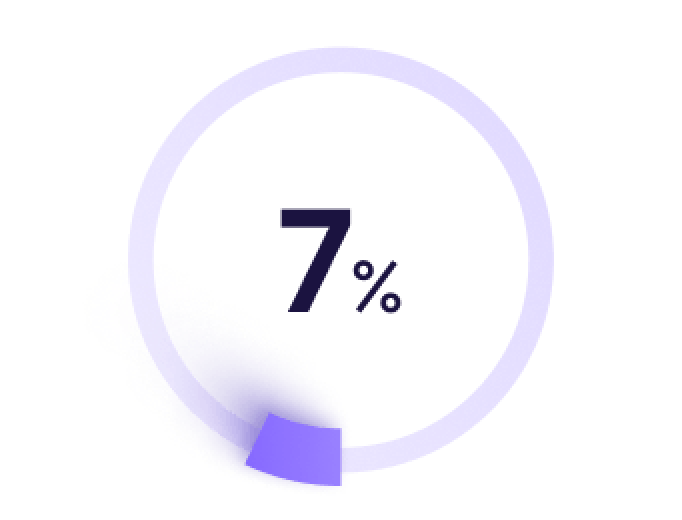
Paying for services that protect their privacy

Prefer not to say
Spread the Word
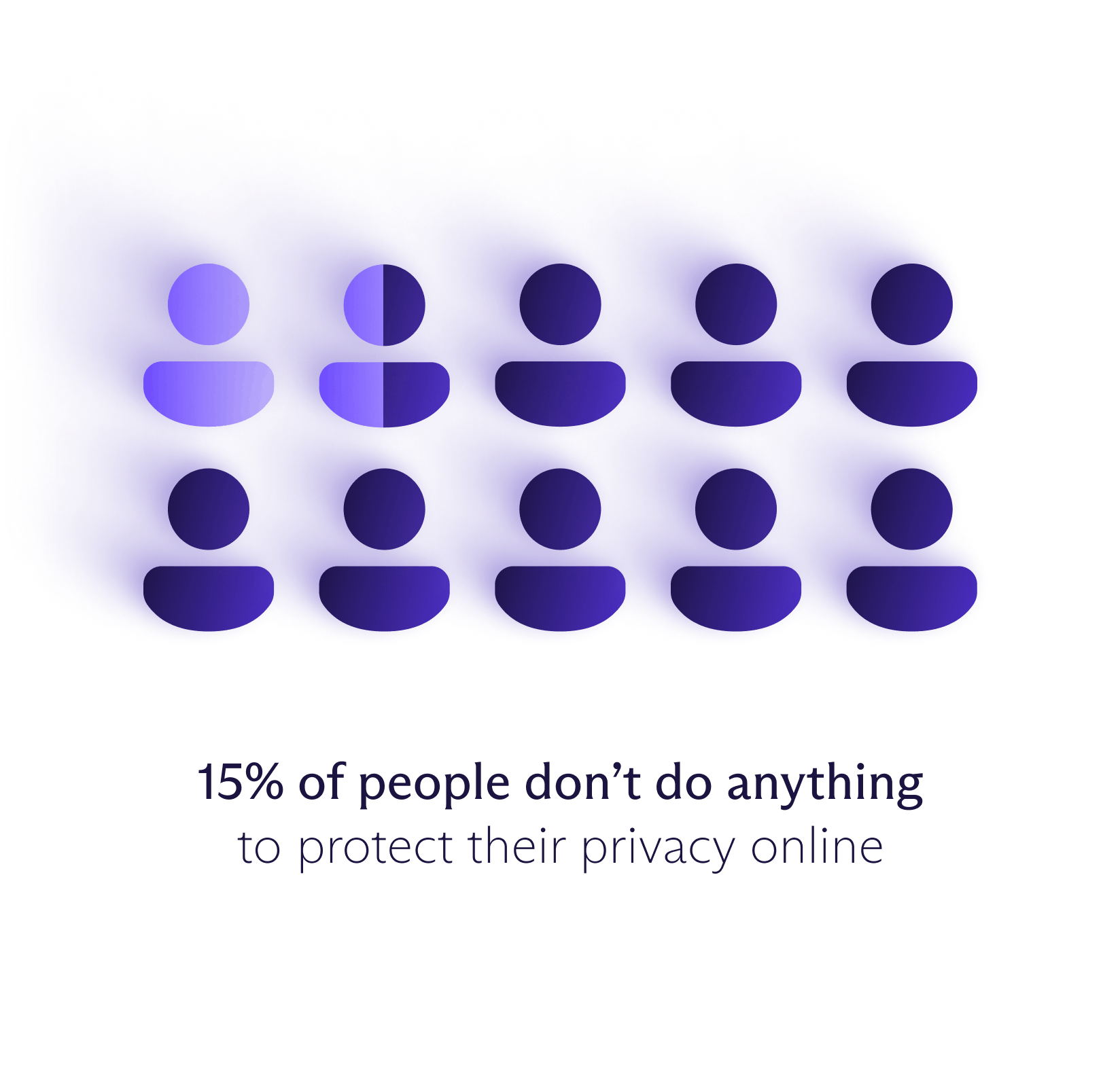
No single action can completely protect your online privacy
Encrypted communications, private browsers, email aliases, VPNs, password managers, and being judicious about posting personal information are all necessary to limit how much of your data tech companies can see. Unfortunately, the perceived difficulty and futility of trying to defend online privacy may lead some people to do nothing at all.
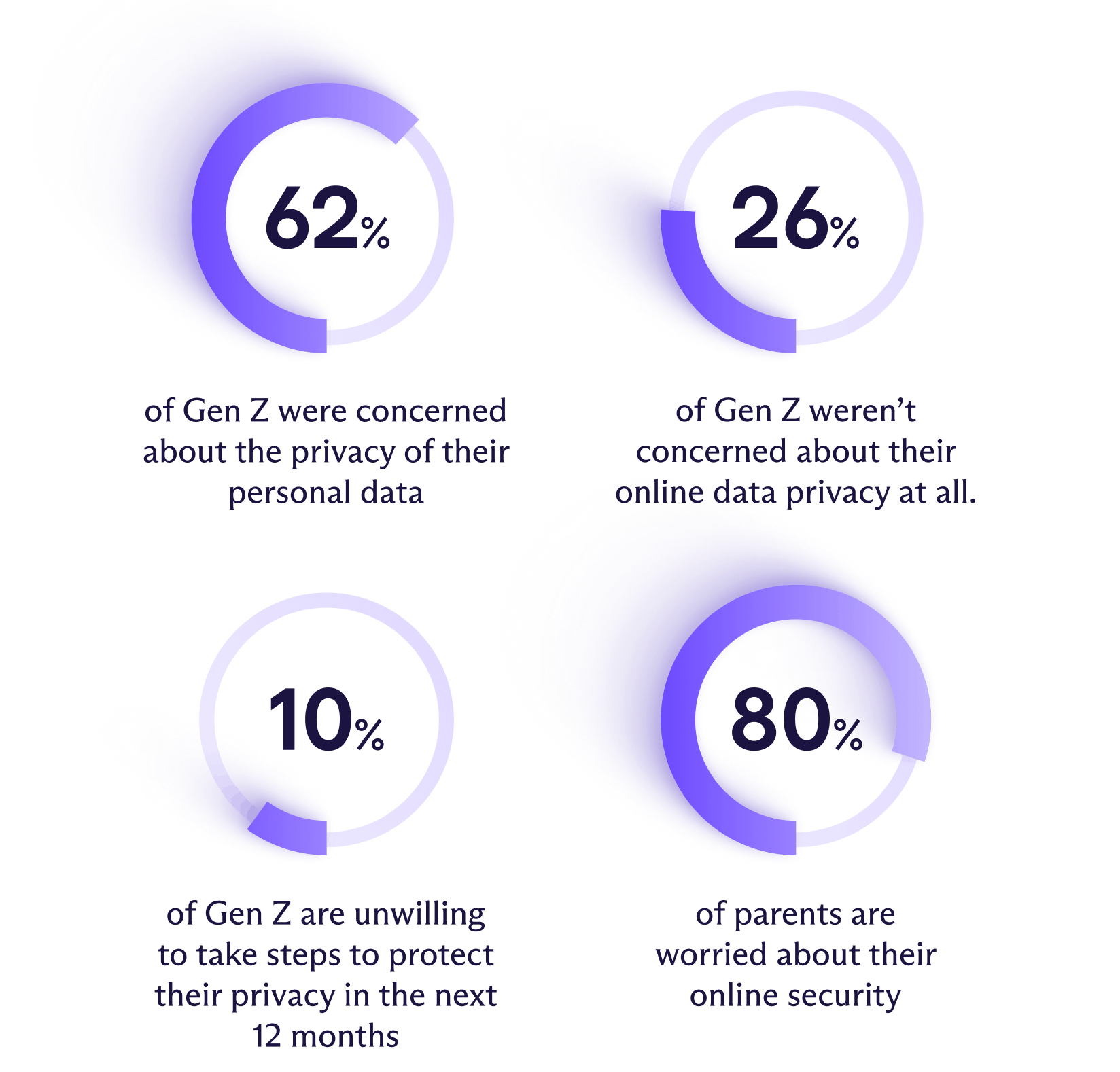
Two views on privacy:
Gen Z vs. parents
Gen Z vs. parents
Younger generations have grown up with technology at their fingertips from an early age. But our research shows Gen Z (respondents aged 18-24) are less likely to worry about their privacy.

Big Tech keeps us in the dark
To Big Tech, more data equals more targeted ads, which means more revenue. These companies collect and track as much personal information as they can, including your name, email address, phone number, IP address, location, the devices you use, and even what you’re doing on your devices.
- Over half of people (52%) disagree that ‘free’ online services monetizing their data is an ethical business model.
- Over two-thirds (69%) of respondents say they don’t understand how online services use their data.
Spread the Word
It’s time for change
It would be foolish to hope that any Big Tech company would break their addiction to your data on their own. The demand for ever-increasing profits means they will likely do the opposite, rushing to find new ways to gather and exploit your data and attention.
It’s time for change. The only solution is to abandon surveillance-based platforms and start afresh with a new business model for the internet that puts people first.
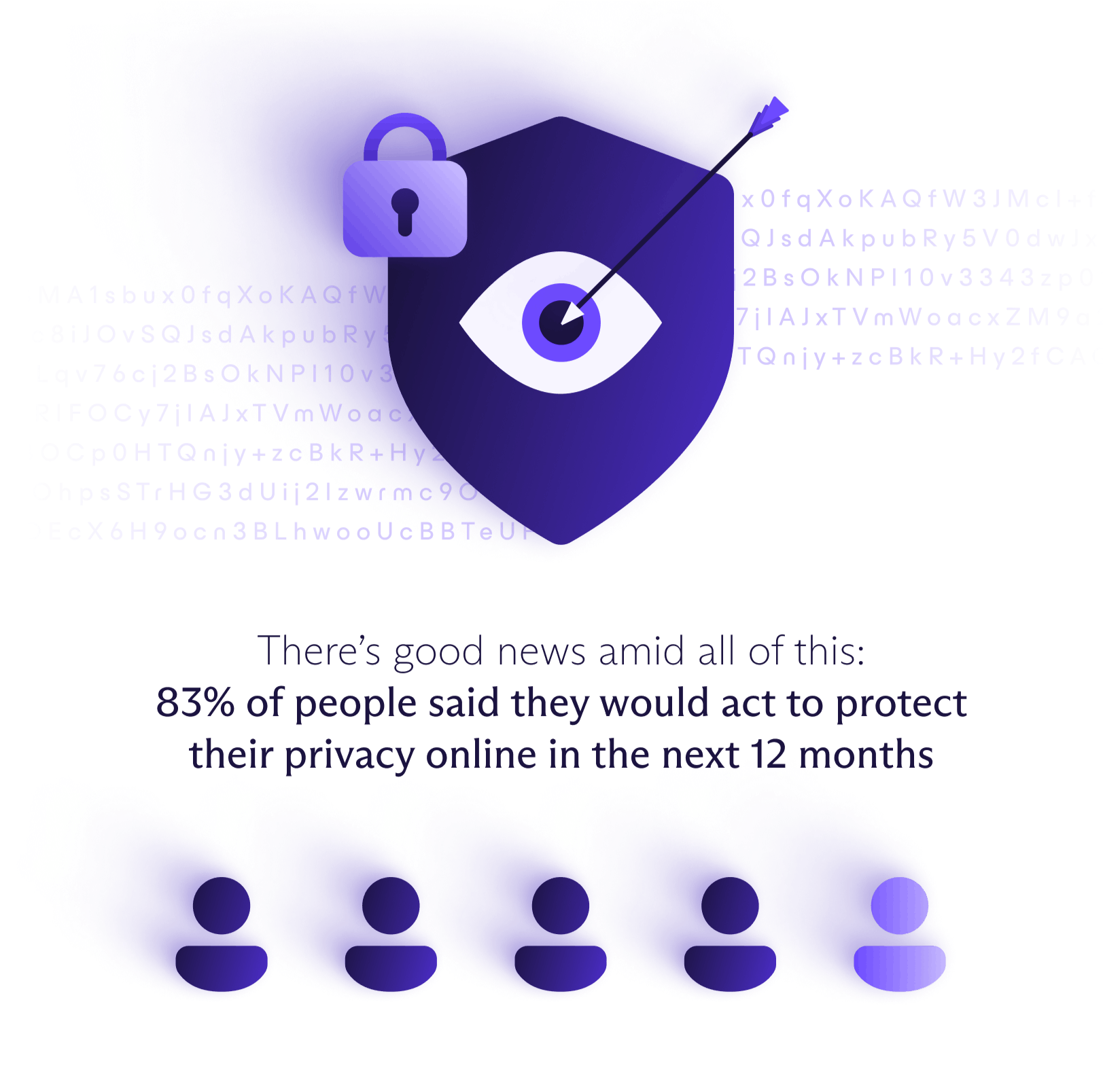
What you can do to fight Big Tech surveillance and protect your data
1. Use strong passwords and 2FA wherever possible
Your password is your first line of defense. Password managers can help you generate and store passwords so you don’t have to remember them or write them down. Two-factor authentication is also crucial. When enabled, even if someone steals your password, they will still need another piece of information to log in to your account.
2. Keep your browsing private and limit what you share online
Using privacy-focused browsers and a VPN can help keep your web traffic safe and mask your true location.
Additionally, limiting self-exposure of personal data is key to protecting your privacy, especially since hackers can use these clues for social engineering. Photos you share on social media can even be used to create deepfakes.
3. Keep your communications private
There are many ways companies and hackers can access your private conversations. End-to-end encrypted services, on the other hand, ensure no one can read your communications — not even the service provider themselves.
4. Make sure your device is secure
A compromised smartphone — whether lost or stolen — can compromise your online accounts.
Even someone looking over your shoulder can gather information that would give them access to your accounts. Always set a password or biometric authentication on your device.
5. Be vigilant
Phishing attacks attempt to steal account credentials or infect your device with malware by tricking you into clicking a link or downloading an attachment. Be vigilant and never click unknown links or download anything you don’t trust. And make sure your software is up to date.
See our findings
Click the link below to download the Proton-YouGov data on privacy attitudes in the UK.
For press inquiries contact media@proton.me or view our Press Kit.







